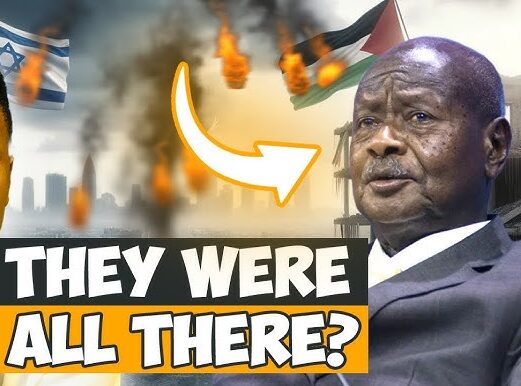
By Our Reporter
In a comprehensive and historically grounded statement, General (Rtd) Yoweri Museveni, President of the Republic of Uganda and current Chairman of the Non-Aligned Movement (NAM) until 2027, has publicly articulated Uganda’s long-held views on the volatile situation in the Middle East.
Responding to a recent query from the Iranian Ambassador to Uganda regarding the nation’s silence, President Museveni called for a return to “principled diplomacy” and laid blame on multiple actors for perpetuating the enduring conflict.
President Museveni, known for his robust and often unvarnished critiques, outlined what he termed four significant “mistakes” that have shaped the region’s instability. He emphasized Uganda’s foundational belief, born from its own history of resistance, in the “politics of legitimate interests” over any form of chauvinism based on identity, whether race, tribe, religion, or gender.
Addressing the “Mistake-Makers”:
-
Iranian Islamists: President Museveni directly challenged the Iranian position that Israel is a “transplant” lacking legitimate historical ties to the Middle East. Drawing on biblical accounts, he asserted that Israel is indeed part of the ancient land and that the Jewish people, dispersed by the Romans, have a historical claim to their homeland. He reiterated that the United Nations’ decision to partition Palestine into two states was a “correct historical solution,” and that refusal by some Arab and Iranian Islamist factions to recognize this is a fundamental error. He pointed to the “absurdity” of the 1924 British offer of Uganda as a Jewish homeland, which Jews wisely refused, insisting on Palestine.
-
The Israelis: The Ugandan leader equally criticized Israel’s consistent refusal to implement the two-state solution. He rejected the notion that Palestinians do not belong in the region, drawing parallels to Idi Amin’s misguided expulsion of Indians from Uganda. Museveni argued that denying the belonging of Palestinians, many of whom migrated to the area after the Roman dispersion of Jews, is akin to ignoring the historical migration of Europeans to other continents.
-
Western Imperialists (specifically the CIA): President Museveni unequivocally blamed Western powers, particularly the Central Intelligence Agency (CIA), for their role in the region’s current woes. He cited the 1953 overthrow of Iran’s democratically elected leader, Mohammad Mosaddegh, as an act driven by a desire to “steal the oil of Iran.” This intervention, he contended, created the deep-seated resentment that ultimately fostered the rise of the current clerical leadership in Iran. He expressed dismay at their historical ignorance, even remarking on his own biblical knowledge of the “Persians and Medians.” Museveni warned against “fundamentalists of all types – Islamic or Christian,” calling them a “danger to humanity,” referencing the Christian Inquisition and the destruction of Sudan by Islamic fundamentalists.
-
The Belief in External Force as a Solution: Finally, President Museveni strongly cautioned against the misguided belief that external force can resolve internal conflicts. He cited numerous historical failures, including the Papacy’s attempts to maintain Catholic hegemony in Europe, Metternich’s efforts against the French Revolution, and the failed interventions in the Soviet Union. “Force should be for legitimate defense and not for aggression,” he declared, emphasizing that such interventions often backfire, sometimes leading to the disappearance of the interveners themselves.
President Museveni concluded his powerful statement with an earnest appeal to all actors in the Middle East to abandon the use of force and instead embrace “principled diplomacy.”3 He urged Iran and “the Islamists” to acknowledge Israel’s existence, and equally called upon Israel to implement the long-overdue two-state solution.
In a poignant closing, the Ugandan President extended a spiritual invitation: “Perhaps it’s time that we all agree to pray together and consult that Creator that cares for all of us without preference. May we have the willingness to humble ourselves and pray and ask for God’s wisdom, that we may do what is right in His eyes; maybe that time has come and only He has the power, the right and the Justice to decide what is the way forward for all of4 us.”




